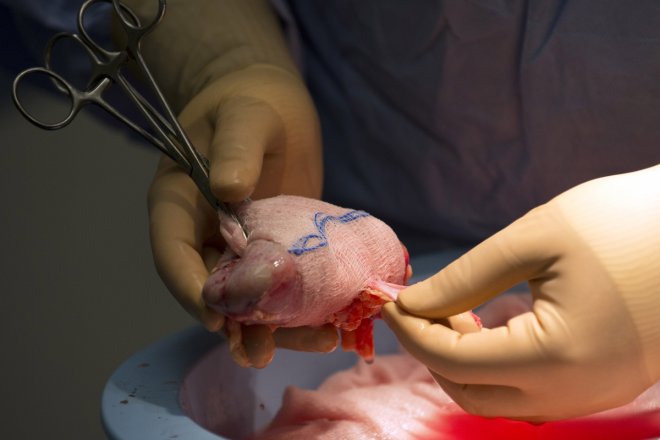
To watch your child die and be unable to do anything is heartbreaking, but to mourn your son's death twice is beyond mere pain.
The 83-year-old Tan Sock Lian lost her youngest son, Tony Chua Yam Chek, in 1991. He died of a brain haemorrhage at the age of 27. Even after his death, he has lived on as his heart was successfully transplanted into 30-year-old Tan Chwee Suan, the first woman in Singapore to receive a heart transplant.
Chwee Suan had lost her leg at the age of 18 to bone cancer and led a tough life with only a meagre wage of S$700 from a bookbinder job. Tan met Chwee Suan in 2011, 20 years after her son's heart was donated to her.
In a barely furnished, rental one-room flat in Mei Ling Street, Chwee Suan tried her best to live a cheery life. She bought food from hawkers because dining in restaurants was beyond her means.
Now, 26 years after the transplant on March 28, Chwee Suan has been found dead at home by a nurse, her colleagues told Channel News Asia.
Tan broke down on hearing the news. "She was close to my heart. She was like my child. My son's heart was inside her, so she was like my child too," she said. "She called me during Chinese New Year and said she wanted to visit me and I told her to come. But she didn't come..."
The heartbroken mother recalled her son's death, and how he had returned from dinner complaining of a headache. To soothe him, she gave him two Panadol pills before he went to bed. He never woke up again. The doctors were unable to do anything for her son who was already brain dead.
"But his organs were good and there were four people who needed them. The heart of one of them couldn't function, another needed a liver, two needed kidneys," she said. "He asked me to save others. Initially, I refused. My son was already in that state and you still wanted to operate on him to remove his organs ... I raised my son since young, I couldn't bear to. But the doctor kept pleading with me, so I signed and gave my consent to save others."
Singapore takes pride in having one of the best health care systems in the world, but it is unfortunately at the back of the race when it comes to organ transplants. Experts say family refusal remains one of the biggest obstacles to donation.
There were a low number of viable donors before the Human Organ Transplant Act (HOTA) was revised in 2004, allowing for the automatic removal of the liver, heart and corneas in addition to the kidneys for transplant.
Under the revised act, non-Muslim Singapore citizens and other permanent residents of sound mind are automatically included in organ donation after the age of 21, unless they opt out with the Ministry of Health.
The HOTA was amended in 2009, primarily for the benefit of Singaporean citizens. Now it covers all citizens, including Muslims and permanent residents above the age of 21, unless they opt out. The upper age limit of 60 for the donors has also been taken off.
Over 73 heart transplants have taken place since the first transplant in 1990. Currently, there are 23 patients on the waiting list to receive a new heart.
Tan Sock Lian was never sure if her decision to donate her son's organs were right, but was enlightened after she saw how hard Chwee Suan worked to keep her heart pumping.
She told Channel News Asia that she had no regrets.









